CofK Participates in Hevelius Conference in Gdańsk
Tags: Astronomy, Gdańsk, History of Science, Johannes Hevelius, John Wallis, Networks, Oxford, Samuel Hartlib, Seventeenth Century, Union Catalogue
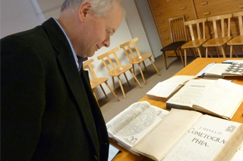
Philip consults the Cometographia.
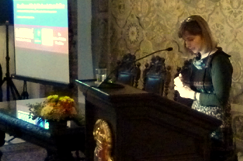
Kim introduces the union catalogue.
CofK Research Fellow, Philip Beeley, and Editor, Kim McLean-Fiander, have recently returned from Poland after participating in a conference on Johannes Hevelius: The Burgher of Gdańsk and his Work. Hosted by the Gdańsk Scientific Society on 24-25 November, and taking place in the splendid historic setting of the Main Town Hall, the conference was organised to commemorate the 400th anniversary of the birth of one of the city’s most famous sons, the astronomer, instrument maker, inventor, brewer, printing-house owner, and town councillor, Johannes Hevelius (1611-87).
The conference opened with a special viewing of some of the Hevelian treasures of the Polish Academy of Sciences Library, including the Cometographia. His life and works were then examined from a wide range of perspectives by speakers from Poland, France, Italy, and the UK on topics such as the correlations between Hevelius’s astronomical observations in Gdańsk and those taken by Jean Picard on the same day in Paris; the controversy which arose between Hevelius and Adrien Auzout over systems for tracking comet paths; Hevelius’s work as an inventor of scientific instruments and the pendulum clock; his curriculum whilst attending the Gdańsk Academic Gymnasium; and his vocational experiences as city councillor, brewer, and printing-house owner. After a private viewing of the Main Town Hall’s excellent exhibition Johannes Hevelius and Gdańsk of his Times, Philip opened Friday afternoon’s session with a paper on ‘Hevelius, Hartlib, and Wallis: Early Modern Ideals of Scientific Collaboration’, which argued that this tripartite correspondence between Oxford, London, and Danzig exemplified, as no other, the ideals of the Republic of Letters: intellectual collaboration and exchange as a means to promote the growth of knowledge. Drawing on examples from these and other correspondents within Hevelius’s circle, Kim then demonstrated our forthcoming digital union catalogue of intellectual correspondence, revealing how it allows researchers not only to locate often elusive and dispersed early modern letters, but also to interrogate them in new and exciting ways.
Kim and Philip would like to thank their Polish hosts, in particular Professor Marian Turek and his wife Liz, for their warm hospitality and the invitation to attend the conference in this beautiful Pomeranian city.

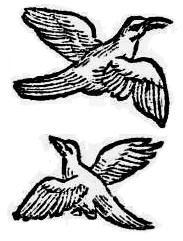




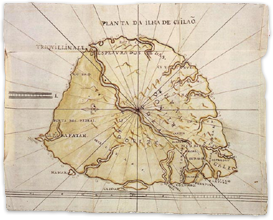 Further to the spatial excitements of our own
Further to the spatial excitements of our own 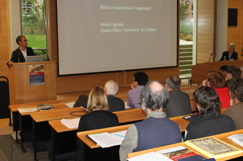
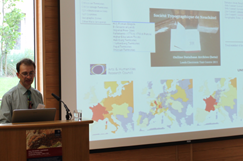
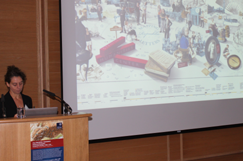
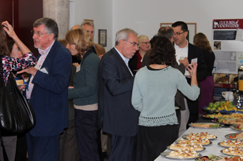
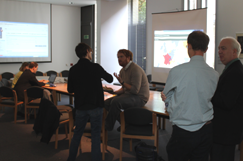
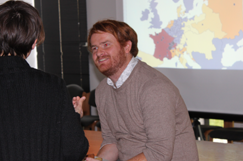
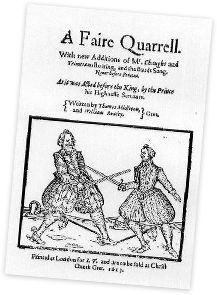 The
The 
 Join
Join 